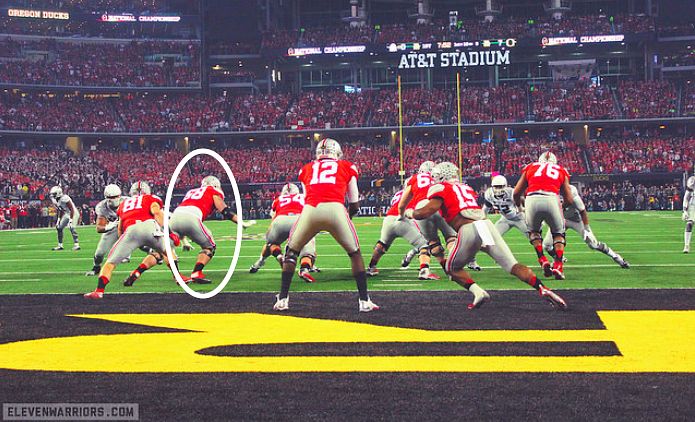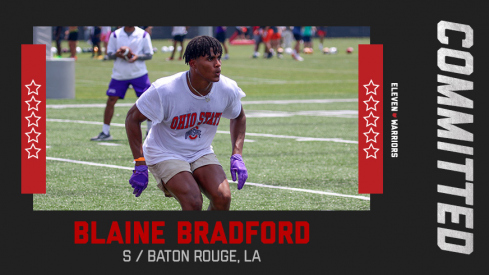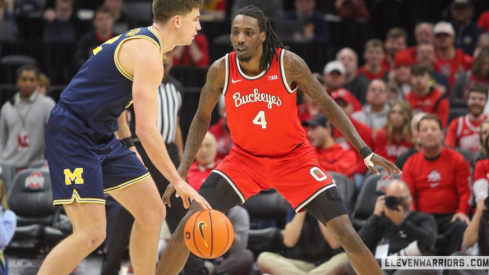Let's start with the punishment.
The NCAA took nine scholarships away from them over three years due to the program's misgivings, pinning the roster at 82 per season. You could debate over how the postseason punishment might have been levied had the team acted differently, but ultimately it was taken away.
There was also probation and public reprimand, along with the humiliation that comes with any scandal. There's being the butt of endless jokes - some of which are still somehow in heavy, tired rotation - which weighs like a lead veil over the delight that makes college football so fun. And there was the coaching change.
A new leader from a formidable coaching tree arrived, but he didn't get any breaks: He even lost his quarterback for the year prior to this season and had to play a freshman in his place. When it rains, it pours: A starting defense end was kicked off the team.
embarrassed at the beginning of the year; everyone said their season was already over.
They were so, so young: Seven freshman or sophomores starting in addition to the new quarterback; eight more underclassmen in the two-deep. The schedule was unforgiving with both the glare of several prime time kickoffs as well as hostile road games they weren't expected to win.
They were embarrassed under the lights at the beginning of the season, and everyone quickly said their year was already over. And everyone was right: That team finished 2014 a disappointing 6-7 with four straight losses to end the season, including one in something called the Duck Commander Independence Bowl.
We are, of course, talking about the Miami Hurricanes. You've just been Shyamalan'd.
It's true; Miami's NCAA punishment for the Nevin Shapiro stuff mirrored Ohio State's imposed discipline in 2011. Like the Buckeyes, the Canes played a whole bunch of kids this year who were in high school a little too recently. They also kicked a DE off the team, lost a senior QB to an injury before the season and started a freshman in his place.
Ohio State also kicked its backup and most-tenured tailback off the team mid-season, lost its best special teamer for the year against Rutgers, its H-back against Michigan State, threw a patchwork offensive line on the field to start the season to replace a bunch of rookie NFL starters and also dealt with the death of a teammate during Michigan week.

The Buckeyes' calamity load was almost unprecedented, but the most comparable case in 2014 had to be the Hurricanes...who ended up winning eight fewer games than the Buckeyes did. The question here is simple: What was the difference?
Miami has averaged the 11th-best recruiting class in the country over the past three years. Ohio State's classes in that span have been around third, so both programs - despite being 18 scholarships short while on probation - still have dozens of players everyone else wanted.
The Buckeyes could have cruised to somewhere like Orlando or Tampa in January. They could have been intimidated by White-Outs, night games in East Lansing, 3rd downs in either direction, the incomprehensible rash of injuries or any of the other setbacks they shared with the Hurricanes. Instead they savored all of it.
If you look at Miami's season, you'll see it was 1-5 away from home. It played poorly at night (i.e. when more than the usual trickle of fans it welcomes during its home day games are watching). It especially wilted in November, losing its final four games.
Miami and Ohio State both had every excuse in the world to be mediocre in 2014.
On a comedic side note, Miami did manage to throttle Virginia Tech 30-6, in Blacksburg. Again, the Hurricanes are not short on talent.
Much has been made of the adversity (is anyone else sick of that word yet?) the Buckeyes faced this season - but the funny thing about hardship is that while setbacks are an easy excuse, they're even better catalysts. They're fuel for competitive vitality. In fact, noted fierce competitor Urban Meyer didn't have to manufacture adversity this season because he had plenty already.
The Hokies shamed the Buckeyes right at the beginning of September and on a Saturday where no Big Ten team did the conference any favors. Earlier that week the Canes were pummeled by Louisville, but no one was trying to bury the entire ACC one week into the season. These two teams were even, even if their conferences weren't.
But from that point going forward the Buckeyes played with urgency, gelling at each position and improving how they operated each week, reserving their best performances for the most challenging ones - which they openly relished. The Canes? They lost to Florida State on November 15 and promptly quit on their season.
It's not what a fan of any team wants to see, but Miami's collapse was at least understandable: Both they and Ohio State had every reason, alibi and all of the excuses in the world to be mediocre in 2014, especially once the season began.
And one team did exactly that. The other won the national championship.

